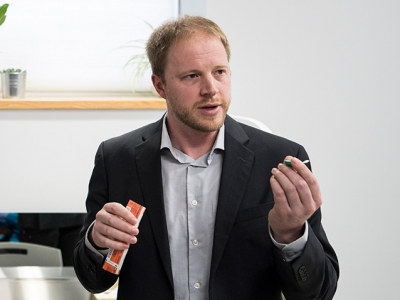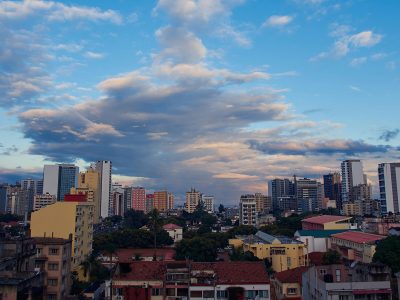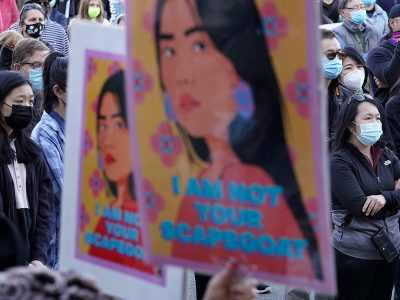By Dan Rubinstein
From June 24 to 28, the largest annual international gathering of experts in the fields of migration, integration and diversity will convene in the National Capital Region.
The International Metropolis Conference, which draws attendees from academia, government and civil society, is part of a global effort to help people who move from one country to another, either voluntarily or out of necessity, successfully settle into their new lives.
Not only is the secretariat of the conference’s parent organization based at Carleton, there will also be a significant Carleton contribution to the conference, including workshops with faculty members including Martin Geiger, Amrita Hari and James Milner.
“Carleton and Canada have a tremendous opportunity to help bring research about migration and refugee issues into the conversation with policy-makers and practitioners,” says Milner, a Political Science professor and project director of the Local Engagement Refugee Research Network (LERRN), a seven-year project to ensure that refugee research, policy and practice are shaped by a more inclusive, equitable and informed collective engagement of civil society.
“For our government, at this time, this conference is huge,” says Milner.
“Amongst western democracies, Canada is a leader on integration and diversity, which still have broad support here. It will be a prominent issue in the upcoming election, because although there’s pressure to recognize the benefits of migration and the role it plays in the economy, that needs to be balanced with domestic public opinion and rigorous and reliable public institutions.
“It’s this meeting place,” he adds, “that’s the focus of Metropolis.”
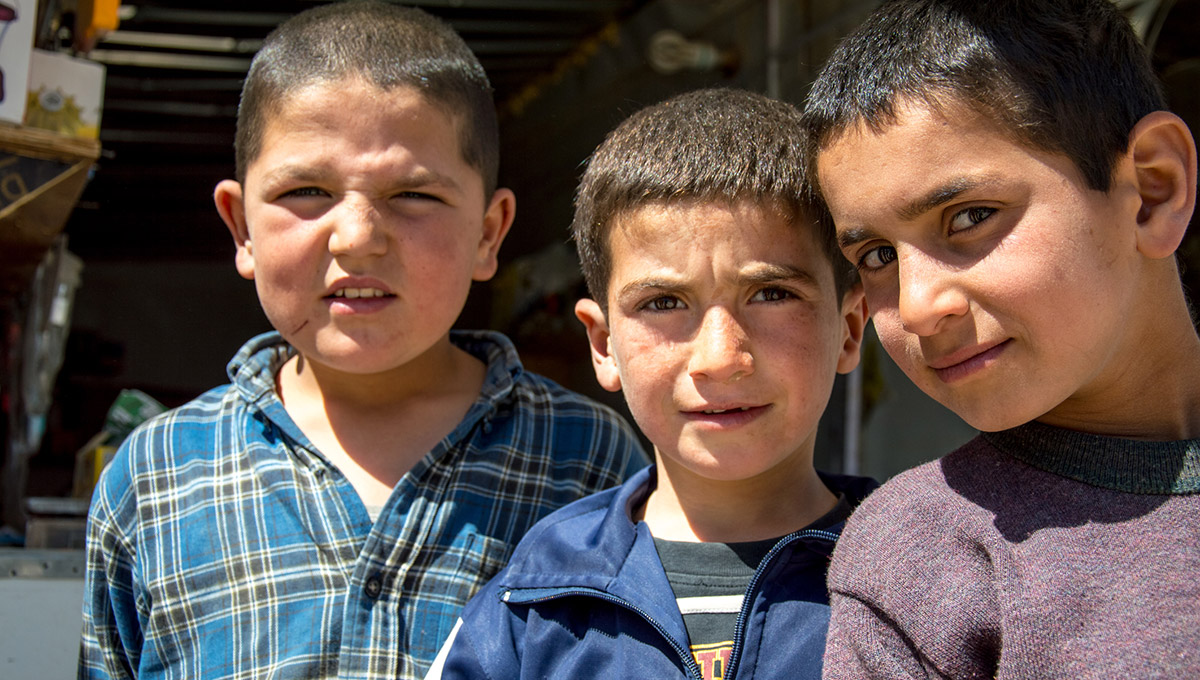
Exploring Global Migration and its Effects on Societies
The Metropolis Project — a network of experts and practitioners from academic institutions and governmental and non-governmental organizations with an interest in international migration and its effects on societies — was established by Citizenship and Immigration Canada in 1996.
Launched as a partnership between 20 Canadian universities whose research was supported by the Social Sciences and Humanities Research Council, the project grew to include collaborators in more than 70 countries, with the federal government agreeing to transfer the Metropolis secretariat to Carleton in 2012.
“It was a nice coincidence that Carleton was looking to expand in these areas just as the secretariat was looking for a new home,” says Metropolis Project Executive Head Howard Duncan, noting that the university’s Migration and Diaspora Studies initiative was getting started around then too. “Metropolis was never really a government organization. We are a network that works to build bridges.
“The idea is to use evidence to advance and improve government policies,” continues Duncan, who has an office on campus. “The idea is to make the world a better place by helping government develop more rational — and more humane — immigration policies.”
Coming to Ottawa-Gatineau soon? #IntlMetropolis2019 features more than 170 workshops for conference participants to choose from! Find the topics that interest you: https://t.co/c4DvJ8BCQe pic.twitter.com/sZQoU6L5e7
— IRCC (@CitImmCanada) June 21, 2019
One of the primary goals of the Metropolis Project and its annual conference is to apply lessons from Canada’s experiences to other countries struggling with migration issues.
“It has been difficult over the years to get people from developing nations on board,” says Duncan.
“But our ambition all along has been to make the lives of migrants better, and to help receiving countries — not just well-equipped places like Canada — integrate people. If migration is managed properly, it can be a benefit both to the host country and the country of origin.”
Metropolis was originally focused mostly on migrants to cities, but that has shifted to include refugees — “a response to what’s happening in the world right now,” says Duncan.
Although there is what Duncan calls a “perennial discussion” about how to derive value from academic research, and a history of distrust between policy-makers and academics, “the only way for these two groups to work together is to actually meet one another on a regular basis and realize that they share a vision of the world. The biggest hurdle is trust, and Metropolis has helped to build trust quite effectively.”
Moreover, the presence of NGO representatives and others who work on the front lines with migrants and refugees, plus participation from countries around the world, has sparked eye-opening international perspectives that have stimulated new ways of thinking.
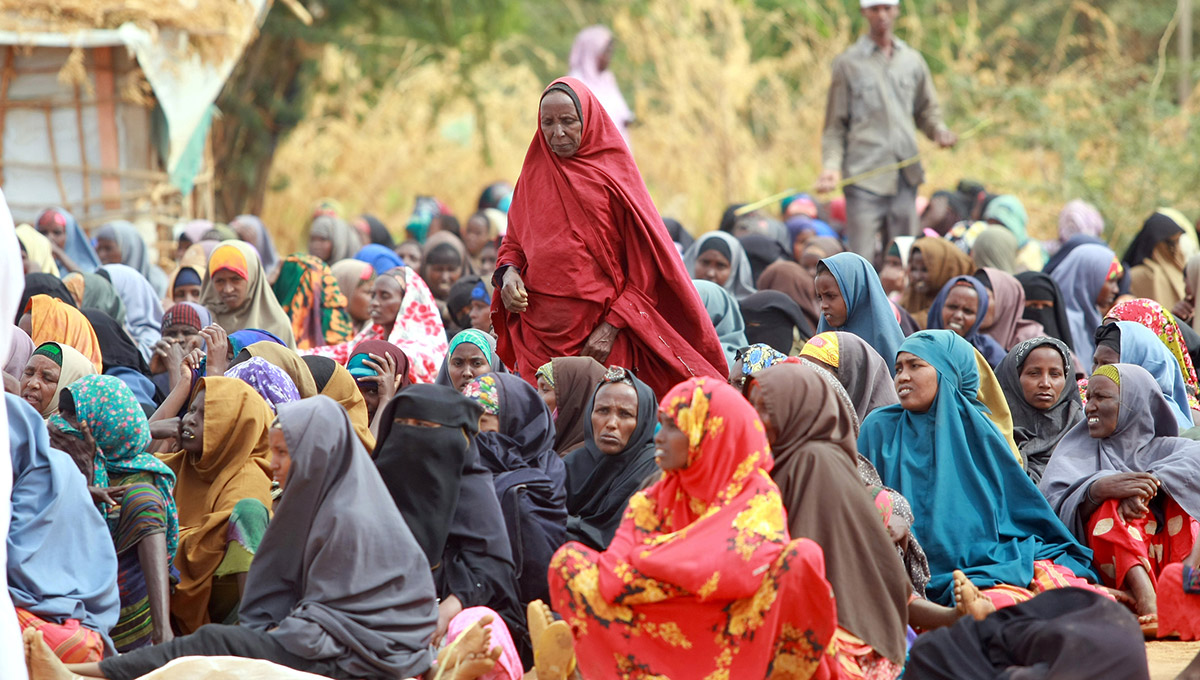
Applying the Global Compact on Refugees at a National Level
Milner, one of the architects of Carleton’s Migration and Diaspora Studies initiative, which now involves more than 30 faculty, will be part of a Metropolis workshop on the Global Compact on Refugees (GCR) and how multi-sectoral partnerships can make it easier to apply the agreement at a national level.
Affirmed by United Nations General Assembly in December 2018, the GCR is “a framework for more predictable and equitable responsibility-sharing, recognizing that a sustainable solution to refugee situations cannot be achieved without international co-operation,” says the UN. “It provides a blueprint for governments, international organizations and other stakeholders to ensure that host communities get the support they need and that refugees can lead productive lives.”
Developed in parallel with the UN’s Global Compact for Migration, the GCR evolved from challenges in Europe that intensified in 2015, explains Milner, when countries were overwhelmed by the surge of refugees fleeing Africa and the Middle East across the Mediterranean.
With 85 per cent of refugees remaining in the global south, often stuck in “temporary” camps for decades, there was increasing international awareness that we need to go beyond humanitarian responses that address basic needs, he says, and come up with “durable solutions.”
Although it has only been in place for a few months, there are already signs the GCR is having a positive impact, says Milner.
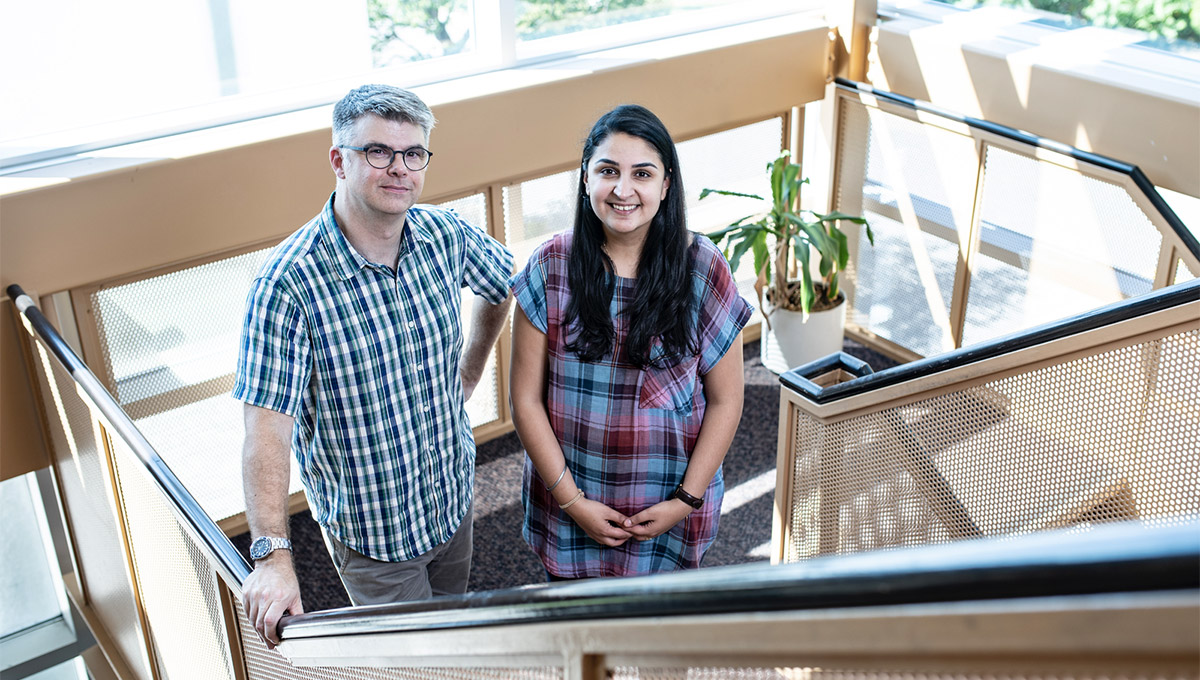
James Milner and Simran Singh at Care Canada
In Ethiopia, for example, steps have been taken to make it easier for refugees to work in sectors such as agriculture and light manufacturing that produce goods for export.
In Kenya, one of the countries where the LERRN project is active, there is growing acceptance of refugees and locals working and living side by side and contributing to the economy.
However, in Tanzania, another LERRN country, the government rebuffed international pressure to take a loan to help it host refugees.
“No one approach will work well in every country,” says Milner. “One of the roles of academic research is to help come up with solutions that are effective in specific places.
“This is what happens at Metropolis in a unique way,” he continues. “We bring evidence and analytical tools and show policy-makers how to use them. We also do knowledge transfer. Policy-makers and practitioners might not read an 8,000-word journal article, but they’ll read a four-page policy brief.
“This is an unprecedented opportunity. Having Metropolis in Ottawa, not only the workshops but also the conversations that take place on the margins, will allow us to demonstrate what Carleton can do — and how what we do can be used to inform and improve policy and practice.”
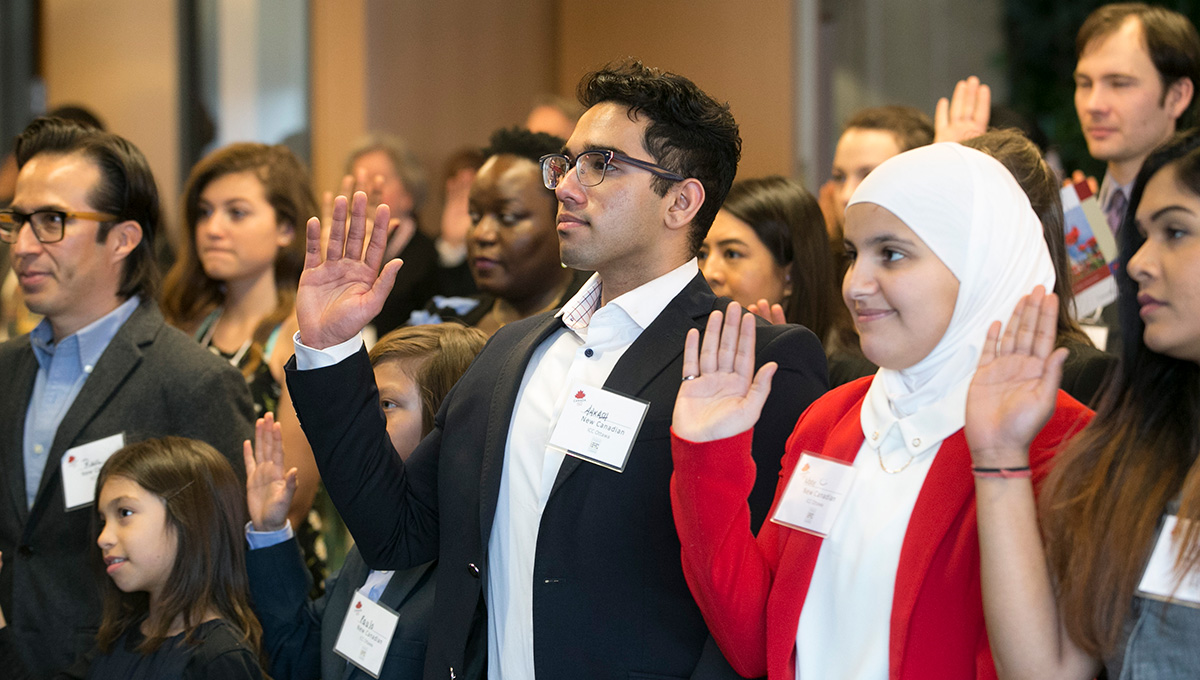
Permanent Resident Status: Difficult to Gain, Easy to Lose
Carleton Prof. Amrita Hari, from the university’s Pauline Jewett Institute for Women’s and Gender Studies, is speaking at a Metropolis session on permanent resident status for highly skilled foreign workers in Canada, and how some immigrant groups are better poised to attain permanent residency than others.
“There is an abundance of scholarship and documented evidence of the racist and sexist tendencies of migration policy which set limits on who is admitted into and who can stay in Canada,” says Hari. “These structuring effects result in women being relegated to literal, symbolic and cultural processes of reproducing society.”
As an example, she cities the Live-In Caregiver Program and the fraught path to permanent status that it provides.
“Moreover, Canada’s over-reliance on temporary migration inevitably maintains a white settler identity whereby racialized migrants and refugees are at an increased risk of abuse and exploitation and often subject to misguided public, media and policy discourses,” adds Hari, “which can label them as burdens, illegals and criminals.
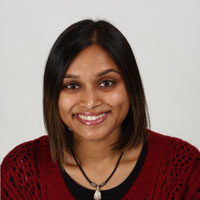
Amrita Hari
“Permanent resident status remains contingent on perceived utility to Canadian economy and society. This achievement is becoming difficult to gain but easy to lose.”
Although Justin Trudeau’s Liberal government introduced an ambitious plan for reform, changing the name of Citizenship and Immigration Canada to Immigration, Refugees and Citizenship Canada and promoting a “welcome refugees” campaign, “what remains unchanged is the injustice inherent in Canada’s over-reliance on temporary migration and ‘conditionality’ of status to fill its economic and societal needs,” says Hari.
“Precarity exposes select migrants to limited social benefits and statutory entitlements, job insecurity, low wages and high risks of ill health. Furthermore, short-term or temporary residents are denied access to public settlement services and related social rights.”
At gatherings such as Metropolis, the political process behind immigration, refugee and citizenship policies is the main focus “involving governmental and non-governmental actors operating at multiple scales and across jurisdictional divides,” says Hari. “As a researcher, I am always in search of platforms that recognize this intricate design and aspire to bring together scholars, policy-makers and non-governmental actors to work together and push for reform with effective representation and direct participation of migrants themselves.”

Confronting Problems Related to Labour Market Integration for Refugees and Skilled Immigrants
Carleton Prof. Martin Geiger, from the Department of Political Science and the Institute of European, Russian and Eurasian Studies, is taking part in two workshops at the conference — one with Howard Duncan on labour market integration and commonalities between Canada and Germany, and the other a look at trends, experiences and approaches to attracting and retaining migrant talent.
“Germany over the last five years has developed a multitude of new instruments to promote better labour market integration for refugees and skilled immigrants,” says Geiger.
“Some of its programs are quite advanced. As became obvious during a recent field visit with 15 Carleton students in the Bachelor of Global and International Studies program, some of these new programs can well serve as an example for Canada to learn from.
“The exchange of experiences and a joint discussion of existing challenges and new best practices, particularly between these two globally very important immigrant countries, can be very useful.”
In terms of successfully attracting and retaining skilled migrants, Geiger notes that while Canada has a good track record in this area, “other countries are way ahead in terms of innovation and generating jobs in specific sectors.
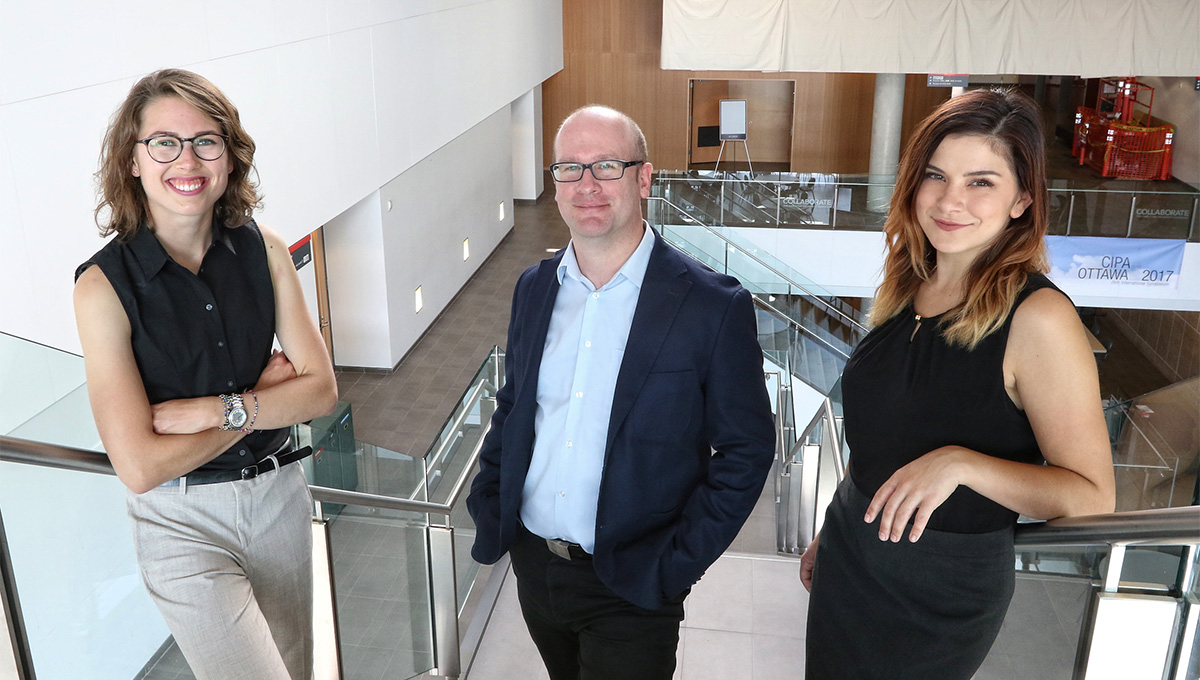
Carleton faculty member Martin Geiger and members of his student research team.
“The recognition of foreign qualifications and skills is still a major problem in Canada,” he adds, “and there are still a lot of problems of underutilization of immigrant talent in Canada. There is also a concerning trend of skilled newcomers leaving Canada after a short while again, and Canadian talents starting or continuing important phases of their career abroad, in particular in the U.S.”
While the Metropolis conference is underway in Ottawa, Geiger — a member of the Metropolis steering committee— is already assisting in the preparation of the next conference, which is scheduled to take place in Beijing next summer.
“China is emerging as a new destination of immigrants and it has recently joined important international frameworks,” he says.
“At the same time, there is growing scholarship in China on migration, mobility, refugees and development. All these reasons taken together, and the need for continued dialogue, make Beijing an important meeting place.”
Monday, June 24, 2019 in Faculty of Arts and Social Sciences, Faculty of Public and Global Affairs, International
Share: Twitter, Facebook
